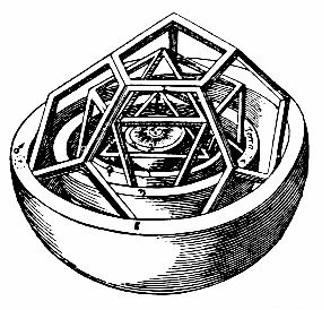
Now that we have sketched the big story of the Universe, let us consider the part played by Emergence in it. Emergence and Reduction go hand in hand in explanation, but Reduction gets all the glory, and Emergence gets all the blame.
One crucial feature of Physical explanation is the separation, introduced by Newton, of Laws and Initial Conditions. Laws can be universal and timeless, while initial conditions introduce messiness and contingency. Another feature of emergence is the role of chance versus determinism. In classical physics, motion is determined, while in quantum mechanics, probabilities are determined, but outcomes are not.
In interaction with symmetry breaking, chance also introduces a large history dependence into Physics. In the standard model, such history dependence is introduced into the deepest features of the Universe, like the masses of the elementary particles, arrived at via the Higgs Mechanism. The Big Bang is the ultimate initial condition. The symmetry-broken Laws are considered to be descended from a more perfect and more symmetric initial state. One book about this idea is even called Perfect Symmetry.
What counts as a Law of Physics anyway? It was once thought that the spacing of the planets was so regular that it had to be accounted for by a law: the Titus-Bode Law. Kepler tried to explain it geometrically. It even works for moons! Now we think it is merely contingent on the initial conditions at the time the solar system formed. How do we decide what needs explanation and what does not?
Are the Laws of Physics really just expressions of purely mathematical truths? Are they as inevitable as 2+2=4? The unreasonable effectiveness of methematics has been commented on. For example, the mathematics of curved space that Einstein used to formulate general relativity had all been worked out previously by Riemann in the 1850s. Was it discovered or invented? This is a perennial question in Philosophy. How can we understand why there are mathematical laws of physics if we can't even understand where math itself comes form? Maybe math is just genetic, something we are wired to do.
What does it mean to "explain" something? What if we can explain a thing "in principle", but not in practice? What if we want to analyze a thing into parts, but, like a proton and its constituent quarks and gluons, it is actually impossible in principle to take the object apart? In the case of such "strong interactions", does it even make sense to talk about parts? Do such things necessarily involve strong emergence? If so, what do we do when reduction fails?
Here are some links to the sand avalanche segregation experiment I showed at the end of class: [ 1 ][ 2 ][ 3 ][ 4 ]. What would it mean to "explain" this experiment?
Tablet notes: [ Lec 13 ]